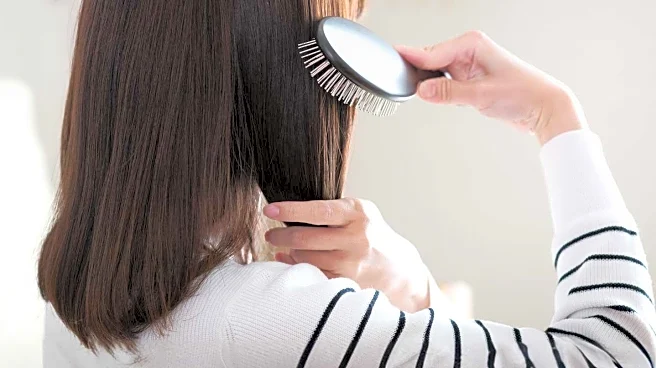What's Happening?
Minoxidil, a medication originally approved for treating high blood pressure, is being used off-label to promote hair regrowth in women experiencing thinning hair due to menopause. A systematic review of 27 studies found that 35% to 47% of participants reported improved hair growth with low-dose minoxidil. The medication, taken in doses ranging from 0.25 to 5 milligrams, is considered safer than higher doses, which can cause severe side effects. Despite its benefits, some users have experienced minor side effects such as unwanted hair growth and swollen ankles. The medication's effectiveness has led to increased interest among women seeking alternatives to traditional hair regrowth treatments.
Why It's Important?
The use of minoxidil for hair regrowth represents a significant development for women facing hair thinning, particularly those affected by menopause. This off-label application provides a potentially effective solution with manageable side effects, offering hope to many who have struggled with hair loss. The findings could influence dermatological practices and encourage further research into low-dose applications of medications for cosmetic purposes. As hair loss can impact self-esteem and quality of life, the availability of effective treatments is crucial for improving the well-being of affected individuals.
What's Next?
Further studies and clinical trials may be conducted to better understand the long-term effects and optimal dosing of minoxidil for hair regrowth. Dermatologists and healthcare providers might consider incorporating low-dose minoxidil into treatment plans for patients experiencing hair thinning. Additionally, pharmaceutical companies could explore the development of new formulations or products based on minoxidil's hair regrowth properties, potentially expanding the market for hair loss treatments.










